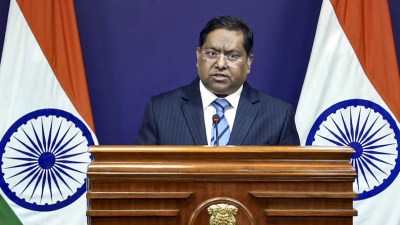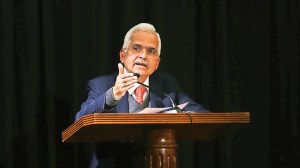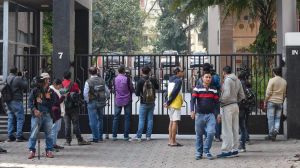BET THE FUTURE WILL BE CLEARER
Like blogs and wikis, prediction markets can spur communication and collaboration within a company.

CORPORATIONS live and die by ideas, and many enterprises have used web-based technologies, like blogs, wikis and social networks, to gather thoughts and hasten their way into new services, products and cost-saving steps.
Now executives say they are harnessing a new web tool, called prediction markets, to transform the idea pipelines inside their companies. Companies like the InterContinental Hotels Group, General Electric and Hewlett-Packard are using prediction markets to try to improve forecasting, reduce risk and accelerate innovation by tapping into the collective wisdom of the work force.
Like blogs and wikis, prediction markets can spur communication and collaboration within a company. Yet they add rigorous measurement to business forecasts, like estimating the sales of a new product or the chances that a project will be finished on time.
Corporate prediction markets work like this: Employees, and potentially outsiders, make their wagers over the Internet using virtual currency, betting anonymously. They bet on what they think will actually happen, not what they hope will happen or what the boss wants. The payoff for the most accurate players is typically a modest prize, cash or an iPod.
The early results are encouraging. 8220;The potential is that prediction markets may be the thing that enables a big company to act more like a small, nimble company again,8221; said Jeffrey Severts, a vice president who oversees prediction markets at Best Buy, the electronics retailer.
The store chain has experimented with prediction markets on everything from demand for digital set-top boxes to store-opening dates. For example, Severts said that in the fall of 2006, the prices in a prediction market on whether a new store in Shanghai would open on time8212;in December 20068212;dropped sharply from 80 a share into the 40-50 range. Players made yes-no bets, and the virtual dollar drop reflected increasing doubt that the store would open on time.
Indeed, Best Buy8217;s first store in China opened late, in January 2007, but the warning signs from the prediction market helped prevent further slippage.
Best Buy plans to move beyond pilot projects in prediction markets to involve more workers throughout the company, starting next month. 8220;It helps on two fronts, the speed and accuracy of information, so that management can move faster to deal with problems or exploit opportunities,8221; Severts said.
For years, public prediction markets have been used for politics, like the Iowa Electronic Markets and Intrade, where buyers and sellers bet on which candidate will win a particular race. And there are prediction markets where people place bets on news events Hubdub, among others, video game sales simExchange or movie box-office receipts Hollywood Stock Exchange.
These markets have often been more accurate than professional pollsters or market researchers. The idea is that the collected knowledge of many people, each with a different perspective, will almost surely be more accurate than an individual or small group or even experts. The concept has been championed by academic economists and was popularized by James Surowiecki8217;s 2004 book The Wisdom of Crowds.
Robin D. Hanson, an economist at George Mason University, proposes a 8220;futarchy,8221; a form of government enhanced by prediction markets. Voters would decide broad goals of national welfare, but betting in speculative markets would determine the policy steps to achieve those goals.
Few in the corporate world go that far. An important issue is whether prediction markets are mainly an innovative way to gather information from employees or a font of reliable answers. 8220;It8217;s still an open question whether the wisdom of crowds is really wise,8221; said John Kao, a consultant and the author of Innovation Nation.
So far, most of the companies using prediction markets are doing so in limited ways, in one or two departments, testing the concept to see how it goes. But in the last few years, corporate experimentation has moved beyond hi-tech businesses into other industries, including retailing, consumer packaged foods, hotels, health care and telecommunications.
Today, analysts say, there are dozens of major corporations testing these markets. The companies include Google, Cisco Systems, GE Healthcare, General Mills, ArcelorMittal, the world8217;s largest steelmaker, and Swisscom, a large telecommunications company.
Setting up corporate prediction markets can be tricky. Public markets for presidential candidates will attract thousands of bettors, but a company may want to run a market only for people with expertise in a certain product or project. At Hewlett-Packard, researchers have been working on techniques and software to make even small prediction markets efficient.
8220;We want to reduce the wisdom of crowds to the wisdom of 12 or 13 people,8221; said Bernardo A. Huberman, director of the social computing lab at Hewlett-Packard. Among the techniques, he said, are preliminary tests to assess the 8220;behavioral risk characteristics8221; of participants to shade predictions from people who are inherently risk seekers or risk averse.
-STEVE LOHR New York Times
- 01
- 02
- 03
- 04
- 05































